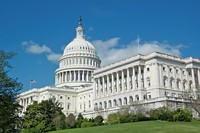Advertisement
Grab your lab coat. Let's get started
Welcome!
Welcome!
Create an account below to get 6 C&EN articles per month, receive newsletters and more - all free.
It seems this is your first time logging in online. Please enter the following information to continue.
As an ACS member you automatically get access to this site. All we need is few more details to create your reading experience.
Not you? Sign in with a different account.
Not you? Sign in with a different account.
ERROR 1
ERROR 1
ERROR 2
ERROR 2
ERROR 2
ERROR 2
ERROR 2
Password and Confirm password must match.
If you have an ACS member number, please enter it here so we can link this account to your membership. (optional)
ERROR 2
ACS values your privacy. By submitting your information, you are gaining access to C&EN and subscribing to our weekly newsletter. We use the information you provide to make your reading experience better, and we will never sell your data to third party members.
Environment
House Passes Ban on Mercury Exports
November 19, 2007
| A version of this story appeared in
Volume 85, Issue 47
The House of Representatives last week passed a bill that would ban U.S. exports of elemental mercury beginning in 2010. The legislation would require the Department of Energy to store quicksilver recovered from chlor-alkali plants, gold-mining operations, and the recycling of fluorescent light bulbs and mercury-containing devices. The bill, H.R. 1534, is aimed at eliminating environmental release of the neurotoxic element. Under the legislation, companies would have to pay DOE a one-time fee to cover most costs of storing the metal. The provision was negotiated by Democrats and Republicans after consultation with three industry organizations—the American Chemistry Council, the Chlorine Institute, and the National Mining Association—as well as with the environmental group Natural Resources Defense Council and the Environmental Council of the States, which is a coalition of top state environmental regulators. The Bush Administration opposes the bill, saying a requirement for DOE to store private-sector mercury is "outside the scope of the department's core mission and would involve additional costs to the federal taxpayer."



Join the conversation
Contact the reporter
Submit a Letter to the Editor for publication
Engage with us on Twitter